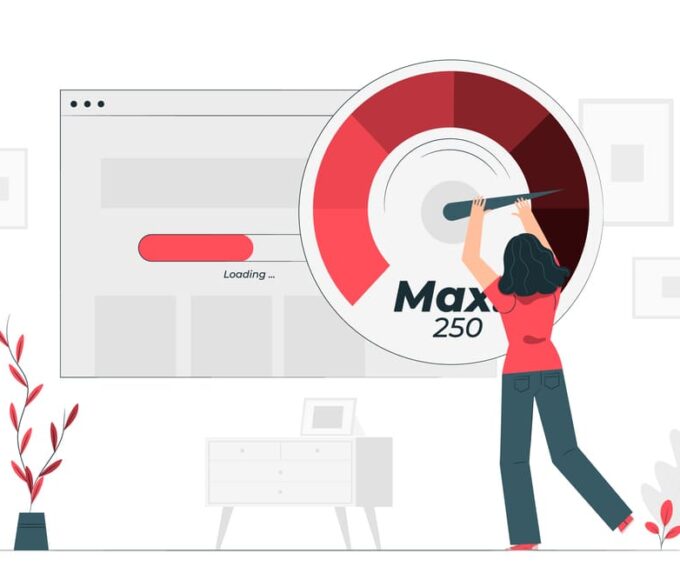In the ever-evolving landscape of SEO, it’s crucial to understand that creating an authoritative website goes far beyond the traditional focus on keywords. While keywords still play a vital role, modern SEO demands a more comprehensive approach. Crafting an authoritative website requires a multifaceted strategy backed by powerful tools and resources. In this article, we’ll delve into the essential SEO tools and strategies that will help you build a website with genuine authority. This goes beyond ranking well in search engines; it ensures your website earns trust and credibility in your industry.
Understanding the Modern SEO Landscape
Before we explore the tools and strategies, it’s essential to grasp the current state of SEO. In the past, SEO often revolved around stuffing web pages with keywords and building as many backlinks as possible. While keywords and backlinks remain crucial, search engines have become much more sophisticated. They now prioritize the quality of content and the user’s experience on a website.
This shift has brought about the need for a more comprehensive and holistic approach to SEO. It’s no longer enough to focus solely on keywords; website owners and SEO professionals must consider various factors to establish genuine authority in their niche or industry.
The Essential SEO Tools and Strategies for Website Authority
- Keyword Research Tools: While we’re looking beyond keywords, they’re still fundamental. Tools like SEMrush, Ahrefs, and Google Keyword Planner aid in discovering relevant keywords and assessing their potential.
- Content Optimization Tools: Elevate the quality of your content with tools like Yoast SEO and Moz. They offer insights and suggestions for optimizing content structure, readability, and SEO factors.
- Backlink Analysis Tools: Building a backlink profile from authoritative sources is critical. Tools like Ahrefs, Majestic, and SEMrush help you assess backlink quality, find link-building opportunities, and monitor your competitors’ strategies.
- Social Media Management Platforms: Effective social media presence can improve your site’s authority. Tools such as Hootsuite and Buffer facilitate social media scheduling, tracking, and interaction with your audience.
- Google Analytics: Understanding your website’s performance is pivotal. Google Analytics provides data on user behavior, enabling data-driven decisions for improved authority and user experience.
- Google Search Console: Monitor how Google perceives your site. Discover indexing issues, submit sitemaps, and analyze search traffic to enhance your website’s authority.
- Online Reputation Management Tools: Online reviews are significant. Tools like Yelp, TripAdvisor, and Google My Business help manage reviews and maintain a positive online reputation.
- Schema Markup Generators: Enhance your search results with structured data. Schema markup generators like Schema.org and Google’s Structured Data Markup Helper can help you stand out in search.
- Citation Management Tools: Local SEO is vital for many businesses. Tools like Moz Local and Whitespark assist in managing business citations to ensure consistency and accuracy.
- Competitor Analysis Tools: Gain insights into your competitors’ strategies. Tools such as SpyFu and SimilarWeb provide data on competitors’ traffic sources, keywords, and content strategies.
- Content Marketing Platforms: HubSpot and Contentful offer a range of tools to plan, create, and distribute authoritative content. A solid content marketing strategy is key to building website authority.
- Site Speed Testing Tools: Page speed impacts both user experience and SEO. Tools like Google’s PageSpeed Insights and GTmetrix assist in optimizing your site for faster load times.
- Email Marketing Services: Building a strong email list is crucial for maintaining a loyal audience. Email marketing platforms like Mailchimp and Constant Contact excel in email list management and campaigns.
- AI-Powered SEO Tools: Leverage AI for content optimization. Tools like Clearscope and MarketMuse provide semantic analysis-based content suggestions, enhancing your content’s authority.
- Local SEO Tools: For businesses with a local presence, tools like BrightLocal aid in optimizing local listings, ensuring your website ranks well in local search results.
The Comprehensive Approach to Website Authority
With these tools in your arsenal, it’s time to dive into the comprehensive approach that goes beyond keywords. Here’s how to leverage these tools effectively to craft an authoritative website:
- High-Quality, Relevant Content: The foundation of website credibility. Create content that offers value and answers users’ questions while maintaining proper grammar, spelling, and factual accuracy.
- Showcasing Authoritativeness: Demonstrate expertise in the content’s subject matter. Highlight the qualifications and experience of content creators and offer citations and references to support claims.
- User-Friendly and Professional Design: The visual appeal of a website is essential. A well-structured layout, intuitive navigation, and professional design play a crucial role in building trust.
- Transparent About Us and Contact Information: Offer clear and accessible information about the website’s creators. Including a physical address, email, and phone number, if applicable, builds trust through transparency.
- Secure and Fast Website: SSL certificates ensure website security, while speed optimization results in a smooth user experience. Website security and speed are essential credibility signals.
- User Reviews and Testimonials: Positive customer reviews and testimonials can have a significant impact. Encourage user-generated content and have a plan for addressing negative reviews and concerns.
- Showcase Logos and Partnerships: Display affiliations, partnerships, and trusted logos. Leveraging social proof from recognizable brands and collaborating with them can boost your credibility.
- Regular Content Updates: Fresh, up-to-date content is essential. Regularly publishing new articles and insights not only engages your audience but also benefits your SEO.
- Responsive and Mobile-Friendly Design: The increasing importance of mobile user experience cannot be overstated. Ensure a responsive website design for all devices, as it serves as a credibility signal.
- User Engagement and Interaction: Encourage user comments, questions, and discussions on your website. Responsiveness to user queries and feedback is key, as a dynamic online community positively impacts trust.
The Authority Advantage
The path to a truly authoritative website involves a holistic approach that goes beyond mere keywords. By integrating the right SEO tools and strategies into your efforts, you can build a website that not only ranks well in search engines but also earns the trust and respect of your audience. Authority isn’t merely about search engine rankings; it’s about establishing a lasting and credible presence in your industry.



